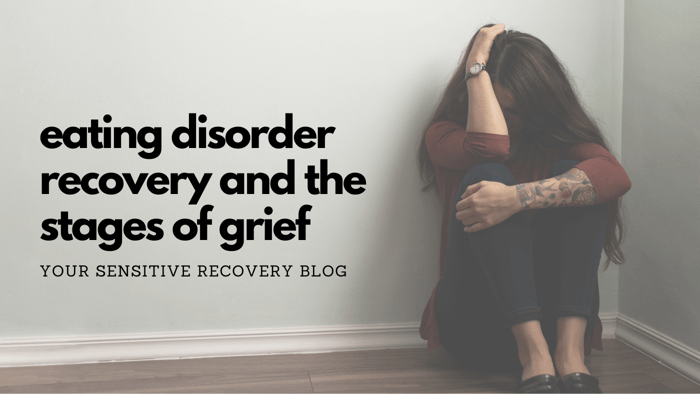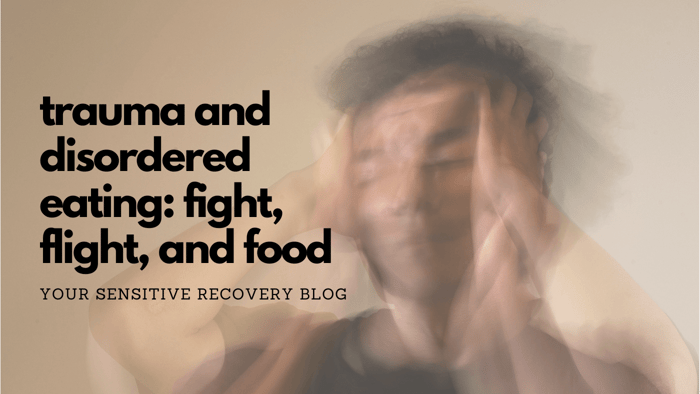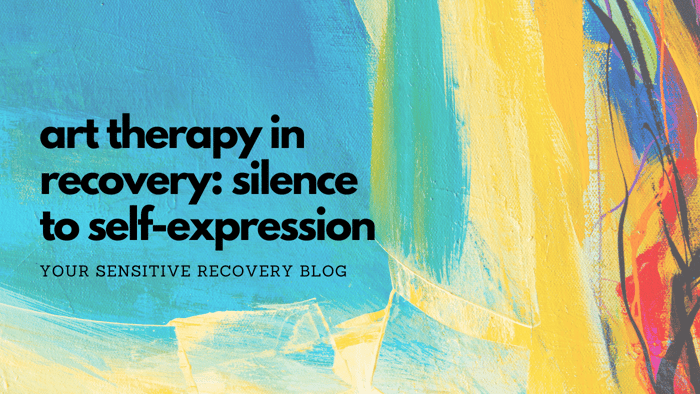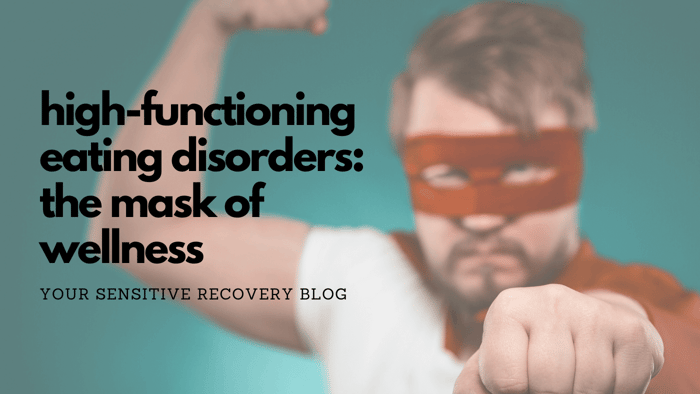Grief is a natural, multifaceted response to loss; a response that is not exclusive to death, but can occur during a variety of significant life changes, including eating disorder recovery.
The journey of healing often involves a variety of losses. There's the letting go of familiar, comforting coping tools, the shifting of an identity built around food or exercise habits, the pain of a changing body, and the recognition of the lies from the diet industrial complex that harmed and oppressed so many of us. Dealing with these losses doesn't happen in tidy, sequential steps. It's a unique, personal experience that can shift daily, even moment-to-moment.
The ever-changing tides of grief can be extremely powerful and confusing. In this post, you'll discover important insights about the stages of grief, your rights as a griever, and how each stage may look on your path to healing.
Phases More Than Stages
The stages of grief and loss were first introduced by psychiatrist Elisabeth Kübler-Ross in her book On Death and Dying. To this day, her insights have been somewhat misinterpreted, leading grievers to believe these "stages" are concurrent steps that will and should occur in a particular order.
But as Kübler-Ross explains, "There is not a typical response to loss, as there is no typical loss. Our grief is as individual as our lives."Individuals in eating disorder recovery may or may not experience each one of these stages/phases, although they are all quite common. It can be harmful, however, to expect your grief to look a certain way or to occur sequentially. At times you may feel lost and confused as to why out of nowhere, you suddenly miss your eating disorder, for example. These powerful moments are sometimes called Grief Bursts. Knowing they are likely to occur can soften the blow and help you move through the bursts with self-compassion and grace.
Your Rights as a Griever
Before we explore the phases, let's get clear on your right: You have the right to experience your own personal grief as you move through eating disorder recovery. You have the right to move in and out of these phases in a way and timing unique to you. You have the right to talk about any ambivalence you may feel about getting better. And you have the right to struggle through your eating disorder recovery and the grief process.
How Denial Might Look
Denial is a powerful sense of disbelief, where you may struggle or refuse to accept the reality of what is. With an eating disorder, this stage often occurs before you've consciously chosen recovery, and can resurface during slips and relapses. Examples:
“I’m not that sick. I’ve been worse. Plus, other people are much sicker.”
“Things aren’t out of control. I actually feel in control, for once.”
“My eating disorder isn’t really interfering with my life.”
“My weight is the real problem. I’m just trying to be healthy.”
"Everybody I know does this. It's not a big deal."
How Anger Might Look
Anger can manifest as frustration, helplessness, or resentment, and it can be directed at yourself, at other people, or even at the situation. Any anger you experience, both during and beyond your eating disorder recovery journey is an important messenger and deserves to be explored. Examples:
- “I’m mad at myself for developing an eating disorder. I should know better.”
- “My parents are imposing recovery on me by making me go to therapy."
- “Nobody really cares. They just want me to be fat.”
- “I’m frustrated that stopping behaviors is harder than I thought it would be.”
- “I’m angry nobody stepped in to help me sooner.”
How Bargaining Might Look
Bargains are an attempt to negotiate with yourself, others, or a higher power, as a means to avoid the change or alleviate its consequences. While the bargains we make can harm us, if they're simply dismissed, it can undermine autonomy in treatment. Exploring bargains in a supportive therapeutic relationship is important.
- “I’ll do whatever else I need to do to get better, but I won’t gain weight.”
- “Yes, I'll stop purging, but only if I'm not binging.”
- “I can focus on recovery after I lose a little weight.”
- “I'll follow the meal plan, but only if I can exercise more.”
- “I don’t need to work with a therapist and a dietitian. I can do it on my own.”
How Depression Might Look
Depression looks like deep sadness or despair, as you begin to understand the weight of the loss or change. In this stage, you can often be grieving the eating disorder experience and the experiences you missed out on because of it. While surrendering to the need for recovery can be empowering, it also opens you up to a host of heavy thoughts and emotions for which we must hold space. Examples:
“I regret the time, energy, and opportunities I lost pursuing thinness.”
“I feel bad for making everyone worry about me.”
“I'm ashamed that I didn’t want help before now.”
“I’m so sad to be giving up something that has really helped me cope.”
“I don’t know who I am without my eating disorder and I feel so lost.”
How Acceptance Might Look
Acceptance is coming to terms with the loss and its consequences, and allowing space for all the feels, the big adjustments, and the deep healing. You may move in and out of this phase multiple times, even before your eating disorder is fully behind you. Examples:
- “I know now that I will never be truly fulfilled by my eating disorder.”
- “There are more important ways to measure my worth and success.”
- “Even when I miss my eating disorder, I know that I can't go back to it.”
- “I’m not sure life without my eating disorder is better, but I’m trusting it will be.”
- “I don’t like my body right now but I choose to no longer blame and abuse it.”
Coming Out the Other Side: One Day at a Time
The pain of your grief will be somewhat proportional to the emotional investment in what you've lost or are leaving behind. If you've had your eating disorder for years, a lengthy, arduous grief journey makes sense. But even with a shorter duration, if your eating disorder served a huge purpose (they all do) or perhaps saved your life in some way, you may also be in for a wild ride.
Make space for grief to be messy. Remember that sometimes feeling ok can be really unsettling.
More than anything, I want you to know this: You are worthy of eating disorder recovery no matter how your grief manifests or how long it sticks around.You are valuable and deserving of good when you're ranting and raving about the unfairness of it all...when you're crying through the pain of change...when you're mid-relapse and drowning in hopelessness...and when you're putting one foot in front of the other and making recovery-oriented choices.
Grief is heavy work...and inspiring...and heartbreaking...and empowering.
As you accept and integrate the emotional experience of this massive, life-altering change we call eating disorder recovery, it will take its place in your life's story and will be a chapter you can close once and for all. However, it will not be erased from your narrative - and that's a good thing.
Grief and recovery alike bring with them a host of important insights, a deeper level of understanding and compassion, and the kind of growth you might not otherwise experience. These gifts are yours to keep and nurture.
And they will serve you, for the rest of your life.
✨ Josie Munroe, LMFT is a licensed therapist and owner of JosieMunroe.com and Your Sensitive Recovery. As a recovered clinician and Highly Sensitive Person, she loves supporting others on their journeys to form new, empowered relationships with food, their bodies, and their sensitivity. Join the newsletter for a weekly boost of hope and inspiration. You deserve a recovery that works for you! ✨





